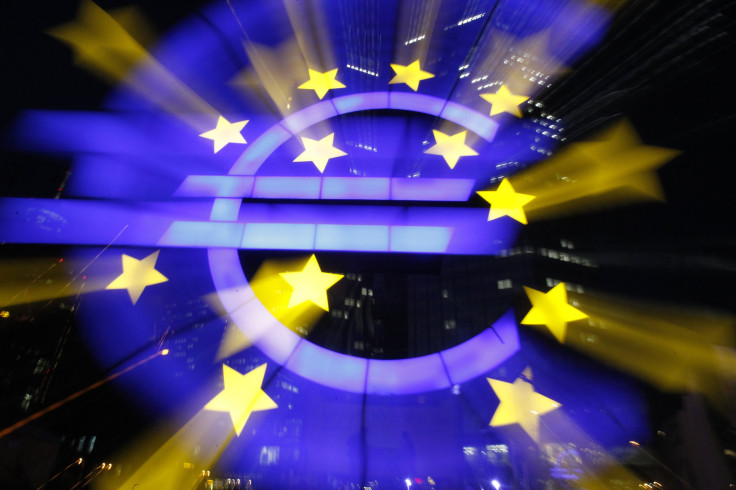Euro Zone, French Economy Slump Eases, German Factory Output Disappoints: Markit Survey

The slowdown in the euro zone economy eased in June as manufacturing activity rose to a 15-month-high, while factory output in Germany -- Europe's largest economy -- dipped unexpectedly, separate business surveys showed.
In France, the country's manufacturing and services sector shrank less than expected indicating fresh signs of economic recovery, while the services sector in Germany also expanded in June, according to Markit's Purchasing Managers Index, or PMI.
Preliminary manufacturing PMI for the 17-nation euro zone rose to 48.7 in June from 48.3 in May -- marking its slowest contraction in 16-months -- against expectations of a 48.4 reading, data from Markit showed. A figure below 50 indicates contraction.
Flash services PMI for the region rose to 48.6 in June from 47.2 recorded in May -- the highest reading since March 2012. The composite index for the euro zone rose to 48.9 in June from 47.7 in May, against the average expectation of a reading of 48.1 by economists polled by Reuters.
In France, the preliminary manufacturing PMI rose to a 16-month high of 48.3 in June from 46.4 in May, while the services sector PMI jumped to 46.5 from 44.3 in May, suggesting a slow improvement in the economy. Analysts had expected factory output to record 47 points and the service sector PMI to clock in at 44.8.
“Conditions remain weak in France, but the latest Flash PMI data offer further evidence that the decline in output has eased over the second quarter,” Jack Kennedy, a senior economist at Markit said, in a press release.
“The slower fall in activity was broad-based across the manufacturing and service sectors, reflecting less marked reductions in new business. Employment continues to be cut at a marked pace, although a lower fall in backlogs of work provides hope that the pace of job shedding may ease in the coming months,” he added.
The composite output index for France rose for the third month running to 46.8 in June, up from 44.6 in May -- the highest in 10 months.
Germany’s service sector expanded to 51.3 in June from a contraction of 49.7 in May, while the manufacturing PMI unexpectedly shrank more than expected to 48.7 in June, compared to 49.4 marked in May, data released by Markit showed. Analysts expected the German service sector to post a reading of 50 and the manufacturing sector to record a contraction of 49.8 points.
Markit in a press release attributed the unexpected rate of contraction to a slump in new orders and a second successive monthly fall in employment, indicating weakening demand in both domestic and foreign markets. Germany's composite output index posted a reading of 50.9 in June, up from 50.2 in May.
“The headline PMI signaled growth of German private sector activity in June, adding to signs that the economy stagnated or perhaps even eked out very modest growth over the second quarter as a whole. However, a look at the other sub-indices paints a worrying picture for the future,” Andrew Harker, a senior economist at Markit, said.
“The drop off in new business intensified and employment was cut for a second month running as firms worried about the persistent weakness of demand,” he added.
© Copyright IBTimes 2025. All rights reserved.






















